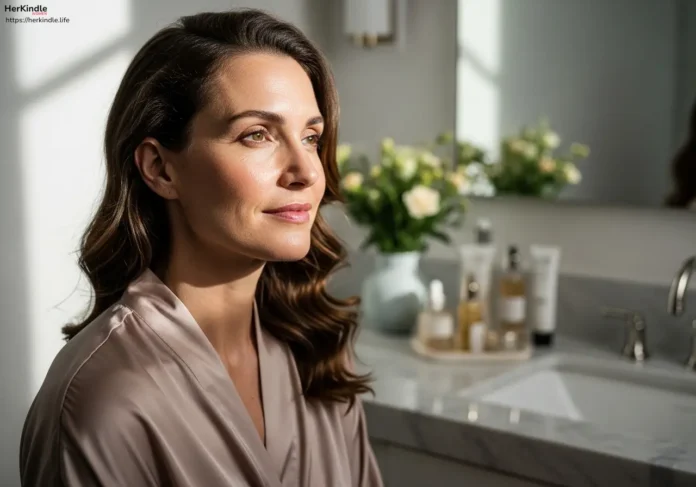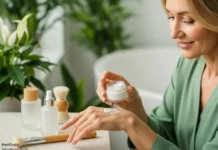Youthful, radiant skin is a goal many women strive to maintain, particularly as we advance beyond our mid-thirties. The process of skin aging is complex, influenced by both intrinsic genetic factors and extrinsic environmental exposures. Understanding these mechanisms is essential for effective anti-aging skin care approaches that truly address the root causes and help preserve skin vitality and beauty.
From scientifically validated topical ingredients to innovative non-invasive cosmetic procedures and lifestyle considerations, modern strategies blend dermatological science with holistic wellness. This comprehensive guide explores the biological underpinnings of skin aging, evaluates the best topical and procedural options, and highlights lifestyle habits that support lasting skin health. Additionally, it looks ahead to emerging research and technologies shaping the future of youthful skin care. Effective strategies offered here are specifically designed to empower women over 35 seeking expert-backed solutions for radiant, youthful skin.
The Science Behind Skin Aging: Causes and Biological Mechanisms
Skin aging results from the interplay of intrinsic and extrinsic factors. Intrinsic aging, also called chronological aging, is dictated by genetics and time, causing gradual collagen loss, reduced cellular regeneration, and thinning skin layers.
Extrinsic aging, often the more visible culprit, is driven by environmental influences including ultraviolet (UV) radiation, pollution, smoking, and lifestyle choices. These stressors accelerate damage primarily via oxidative stress — a biochemical imbalance involving excessive reactive oxygen species (ROS) that harm DNA, proteins, and lipids within skin cells.
Research shows that solar radiation beyond UV rays, including visible light and infrared radiation, significantly contribute to skin damage by generating ROS and disrupting cellular function. Additionally, smoking and pollution further compound oxidative stress, promoting wrinkles, uneven pigmentation, and loss of skin elasticity.
The dermis, the skin’s supportive layer rich in collagen and elastin, suffers from decreased synthesis and structural breakdown. Fibroblasts—primary collagen-producing cells—enter senescence (a state of dysfunction), limiting skin repair and collagen regeneration.
Overall, these biological mechanisms manifest clinically as:
- Wrinkles and fine lines
- Thinning and fragility
- Loss of elasticity and firmness
- Uneven pigmentation including age spots
Understanding these skin aging causes is critical for selecting effective anti-aging skin care methods tailored to combat both intrinsic changes and environmental challenges.
Topical Anti-Aging Ingredients: The Best Compounds to Restore and Protect Skin
Skincare formulations incorporating specific active ingredients can rejuvenate aging skin by promoting collagen synthesis, increasing hydration, and protecting against oxidative damage.
Alpha Hydroxy Acids (AHAs)
AHAs such as glycolic, lactic, and mandelic acid are widely studied exfoliants that accelerate removal of dead skin cells, stimulate collagen production, and improve texture. Glycolic acid penetrates deeply, ideal for wrinkle reduction, while lactic acid offers gentle hydration suitable for sensitive skin. Optimal formulations balance concentration and pH to maximize efficacy while minimizing irritation.
Peptides and Growth Factors
Signaling peptides like Palmitoyl Tripeptide-1 and Acetyl Hexapeptide-51 stimulate fibroblast activity to enhance collagen and elastin production, improving skin elasticity and reducing fine lines. Growth factor-enriched formulations further speed tissue repair and regeneration.
Antioxidants
Ingredients including magnesium ascorbyl phosphate (a Vitamin C derivative), green tea extract, and glutathione neutralize harmful free radicals, preventing oxidative stress and protecting skin integrity.
Bakuchiol
A plant-derived alternative to retinol, bakuchiol inhibits collagen-degrading enzymes and enhances collagen synthesis with superior tolerability and less irritation, making it well-suited for sensitive skin types.
Novel Bioactive Compounds
N-Acetylneuraminic acid (sialic acid) and astaxanthin offer anti-inflammatory and photoprotective benefits, their multifunctional effects supporting collagen pathways and skin hydration.
Combinations of these best anti-aging ingredients, when appropriately formulated, provide synergistic anti-wrinkle and skin-renewing effects.
For those interested in science-backed formulations, the detailed ingredient information can be found in dermatological literature such as comprehensive topical anti-aging ingredient reviews.
Non-Invasive Cosmetic Procedures: Safe and Effective Options to Boost Radiance
Non-invasive cosmetic treatments have surged in popularity given their ability to rejuvenate skin with minimal downtime and reduced risk compared to surgery.
Key non-invasive procedures include:
- Laser Skin Resurfacing: Fractional and non-ablative lasers stimulate collagen remodeling to improve skin texture, reduce fine lines, and even pigmentation with minimal recovery time.
- Chemical Peels: Controlled exfoliation encourages new skin generation, enhancing tone and smoothing wrinkles.
- Microneedling: Creates micro-injuries to trigger collagen induction and boost topical ingredient absorption.
- Injectables (Neuromodulators and Fillers): Botox reduces dynamic wrinkles, whereas hyaluronic acid fillers restore lost volume, contributing to a youthful contour.
- Energy-Based Soft Tissue Tightening: Ultrasound and radiofrequency devices improve skin laxity by stimulating deeper tissue remodeling.
These treatments vary in effectiveness duration, from a few months (Botox) to up to two years (dermal fillers), requiring repeat sessions to maintain results.
Safety profiles are generally positive when performed by board-certified dermatologists or cosmetic surgeons. However, practitioners must consider patient-specific factors like skin type and medical history to minimize risks such as bruising, pigmentation changes, or allergic reactions.
Lifestyle Factors: Holistic Habits to Support Youthful Skin
While topical and procedural interventions are powerful, lifestyle choices profoundly influence skin aging rates and overall dermal health.
Sun Protection
Daily use of broad-spectrum SPF 30+ sunscreen is the cornerstone of preventing premature photoaging. Additional measures like protective clothing and avoiding peak sun hours reinforce skin defense.
Nutrition
Diets rich in antioxidants (berries, leafy greens), omega-3 fatty acids, and collagen-supporting nutrients such as vitamin C and zinc bolster skin structure and fight oxidative damage.
Sleep
Quality sleep allows cellular repair and regeneration, with hormone regulation minimizing inflammation. Sleep deprivation correlates with increased aging signs and weakened skin barrier function.
Physical Activity
Regular exercise improves circulation, enhancing nutrient delivery and promoting collagen synthesis. It also reduces oxidative stress by boosting endogenous antioxidant defenses.
Stress Management and Social Connections
Chronic stress elevates cortisol, which degrades collagen. Positive social relationships and stress-reduction practices like meditation contribute to hormone balance and skin health.
Integrating these lifestyle habits supports comprehensive anti-aging skin care that complements clinical interventions.
Emerging Technologies and Future Directions in Anti-Aging Skin Care
The future of anti-aging skin care is set to be transformed by breakthroughs in biotechnology, nanotechnology, and personalized medicine.
Nanotechnology
Advanced delivery systems utilizing nanoparticles and lipid-based vesicles enhance active ingredient penetration and controlled release, improving treatment effectiveness.
Biotechnology and Personalized Solutions
Gene therapies, growth factor applications, and stem cell-derived extracellular vesicles target molecular aging processes directly, aiming to rejuvenate skin at its core.
Non-Invasive Therapies
Innovations such as ultrasound therapy and cryotherapy stimulate collagen and tissue repair with minimal side effects.
Artificial Intelligence and Diagnostics
AI-powered skin imaging and analytics facilitate customized treatment plans and real-time monitoring.
These technologies promise safer, more effective, and tailored approaches aligned with individual biology, enabling women to achieve sustained youthfulness and skin radiance.
Conclusion: Your Path to Youthful Radiance Starts Now
Combating skin aging requires a multifaceted approach that combines an understanding of biological mechanisms, use of proven topical agents, appropriate selection of non-invasive procedures, and adoption of healthy lifestyle practices.
Empowering yourself with science-backed anti-aging skin care strategies can dramatically improve skin texture, elasticity, and overall appearance, helping preserve your youthful radiance well into your 40s, 50s, and beyond.
Prioritize daily sun protection, nourish your skin from within, consult qualified professionals for suitable cosmetic treatments, and embrace nurturing lifestyle habits. By integrating these steps, you invest in sustainable skin health and glowing confidence.
—
Frequently Asked Questions (FAQs)
Q1: What are the best anti-aging ingredients for sensitive skin?
A1: Ingredients like lactic acid (a gentle AHA), bakuchiol (a retinol alternative), and peptides are well tolerated by sensitive skin while effectively promoting collagen synthesis and hydration.
Q2: How can I prevent wrinkles effectively?
A2: Consistent use of broad-spectrum sunscreen, combined with topical antioxidants and retinoids, along with avoiding smoking and managing stress, significantly helps prevent wrinkle formation.
Q3: Are non-invasive cosmetic procedures safe for women over 35?
A3: Yes, when performed by experienced, board-certified dermatologists or cosmetic surgeons, non-invasive procedures like laser resurfacing, microneedling, and injectable treatments are safe and effective for improving signs of aging.
Q4: What lifestyle habits most influence skin aging?
A4: Sun protection, a nutrient-rich diet, adequate sleep, regular exercise, and stress management are critical lifestyle factors that influence the rate and severity of skin aging.
Q5: What future technologies will shape anti-aging skincare?
A5: Personalized skincare using gene therapy, nanotechnology-based delivery systems, AI diagnostics, and regenerative medicine approaches like stem cell therapies are key emerging trends expected to revolutionize skin aging prevention and treatment.







